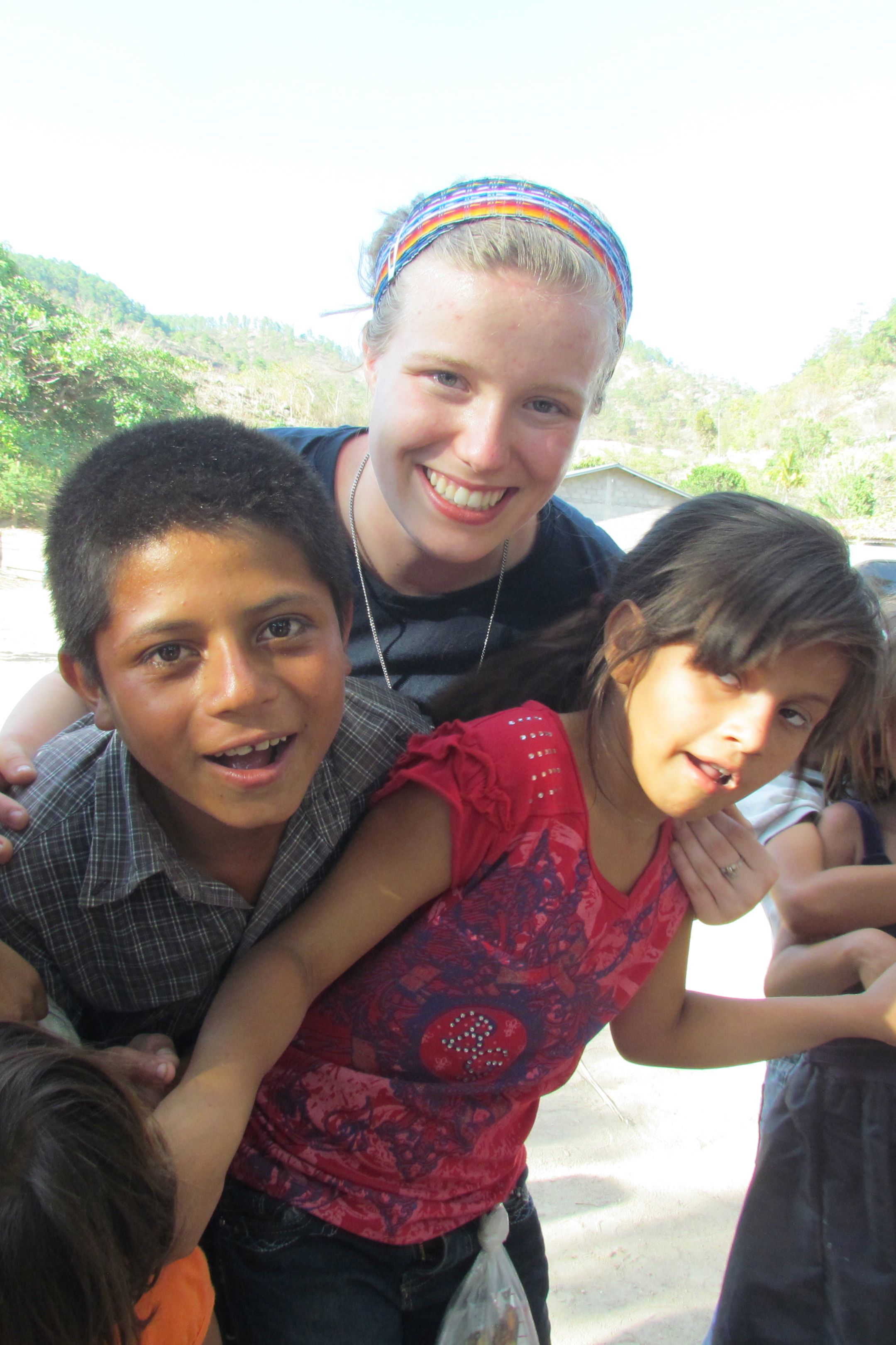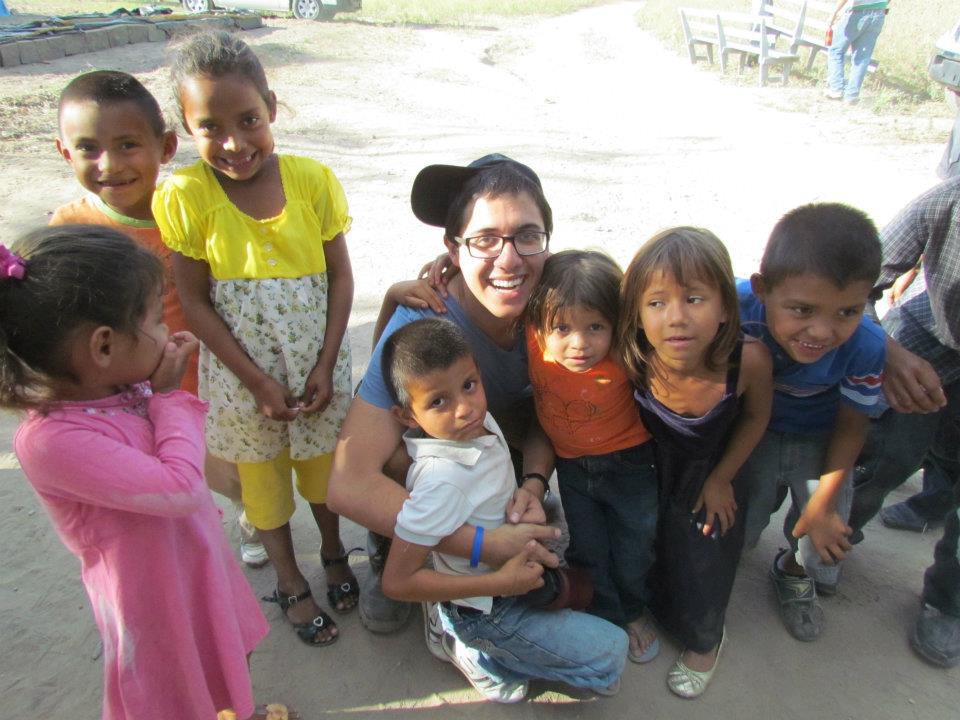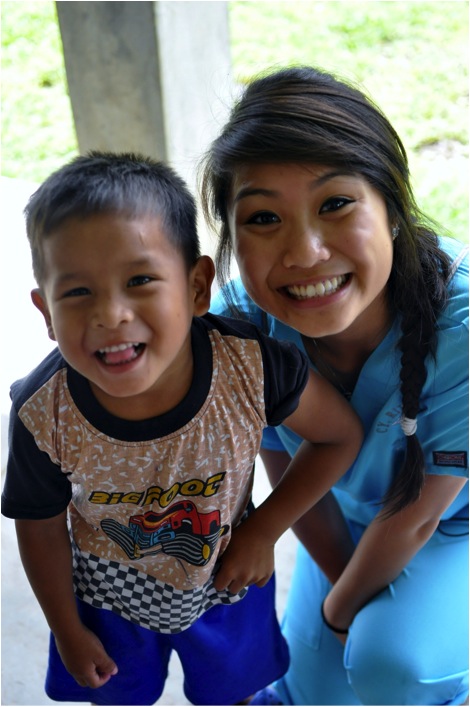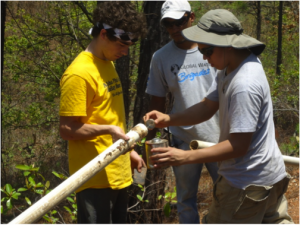Each week we bring you the story and perspective of an outstanding volunteer. This week, meet Christine White, a Microfinance Bigades volunteer from Indiana University who recently participated in a Brigade to Honduras.
——–
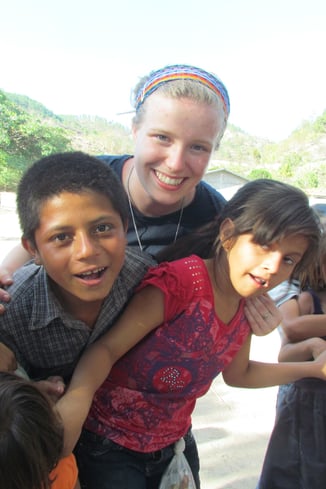 Practical and emotional desires bid me to seek out Global Brigades, which I found in a small booth at Indiana University’s Student Involvement Fair (thanks to the perseverance of our chapter’s presidente). I had wanted to return to Central America and also gain skills applicable to future development work; a spring break trip seemed like a reasonable choice. Others who came were business or economics students, and only some spoke Spanish. However eclectic our Microfinance Brigade from Indiana University might have seemed in America, in Honduras we bonded as a team around the soul of country – it’s people, its countryside, around possibility and hope. Before the trip, I was a portrait of both excitement and skepticism – could a week really matter? What was our role in these peoples’ lives? Now, months later, I still appreciate the enormity of that one, single week.
Practical and emotional desires bid me to seek out Global Brigades, which I found in a small booth at Indiana University’s Student Involvement Fair (thanks to the perseverance of our chapter’s presidente). I had wanted to return to Central America and also gain skills applicable to future development work; a spring break trip seemed like a reasonable choice. Others who came were business or economics students, and only some spoke Spanish. However eclectic our Microfinance Brigade from Indiana University might have seemed in America, in Honduras we bonded as a team around the soul of country – it’s people, its countryside, around possibility and hope. Before the trip, I was a portrait of both excitement and skepticism – could a week really matter? What was our role in these peoples’ lives? Now, months later, I still appreciate the enormity of that one, single week.
The IU Microfinance Brigade’s trip comprised work with a local bank, the Caja Rural, of the tiny town of Tomatín perched in the mountains of central Honduras. We met with the bank’s members, listened to descriptions of their situations and hopes, and then delved into the community to speak with the villagers about their personal finances and expectations for the future.
At the end of our stay, the group decided to allocate our donations towards construction of the Caja building, purchase of a silo to store grain for the agricultural store, capital for products, and a self-feeding bank account that can give children in the village savings and educate them towards the ease of the habit. Choosing how to distribute those funds challenged us greatly, but sharing our decision with the Caja was assuredly one of the proudest moments we shared. We also hosted a large community gathering during which we took to the opportunity to address both the children and adults of Tomatín in regards to saving and budgeting. Our skits were silly but our advice was quite serious, and it seemed like Tomatín received it all with openness and curiosity.
Personally, my most enjoyable experience was designing and introducing new spreadsheets with the women to organize their books for the agriculture store. Their readiness to learn inspired me, as did the tone of the teenagers I talked to during our final community fiesta. As they shared their hopes for studying business or computer programming in the university in Tegucigalpa, their infectious spirit and drive convinced me that the work was real – change could be sustained.
I still returned from Tomatín with just as many questions as before. I can envision this kind of work playing a significant role in 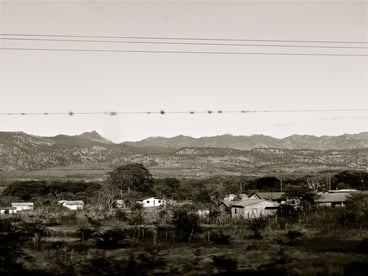 my life, and each class I take, each person I meet in my volunteer work either in the US or abroad help to point me in a new direction and bid me to learn. Work in grassroots organizations depends on innovation, willingness to take risks and responsibility, and developing a close relationship with the area served; whether or not I work on these skills for a week or a lifetime, every moment matters. Global Brigades offers each of their volunteers the unique position of leadership in this dynamic field.
my life, and each class I take, each person I meet in my volunteer work either in the US or abroad help to point me in a new direction and bid me to learn. Work in grassroots organizations depends on innovation, willingness to take risks and responsibility, and developing a close relationship with the area served; whether or not I work on these skills for a week or a lifetime, every moment matters. Global Brigades offers each of their volunteers the unique position of leadership in this dynamic field.
However, I always wonder about my impact in such regions. How sustainable is our work? Can I truly look in the eyes of the aldeanos and tell them how to keep their personal finances? Does the color of my skin or my age speak louder than my words? These are questions that I will continue to ponder throughout the rest of my life, starting with my summer in Nicaragua working with another NGO in just a few short weeks. However, the people of Tomatín gave me an incredibly optimistic response. Most wholly captured in one of the more poignant moments of the trip, this sentiment involved a letter that Roberto, the inspiring caja president, wrote to our group and read to us during our final time in the village. He wrote of the blessings we have and the gifts we shared, he expressed hope for the future of the Caja Rural, and finally insisted that our time was “no adios, sino hasta luego”. Not a good-bye, but an ‘until later’.
I desperately want my time in Honduras to be an “hasta luego”, but in the busy and hectic nature of life, who knows what exactly my future travels will entail. Regardless of my physical ability to return to Tomatín, I find myself there often – the lessons I learned are not contained to one narrow week of work, and the memories don’t fade quickly. I still am in contact with one of our translators, and I came away with a close group of new, dear friends. Already a small group of us are working to prepare for IU’s trip next year, starting with a promotional video and photo display. Some of my friends just returned from a Medical Brigade, bringing back that familiar optimism and joy, which I know they will pass on to others – Global Brigades truly offers a chance to be part of something large and exciting and real. ¡Le agradezco por todo!

